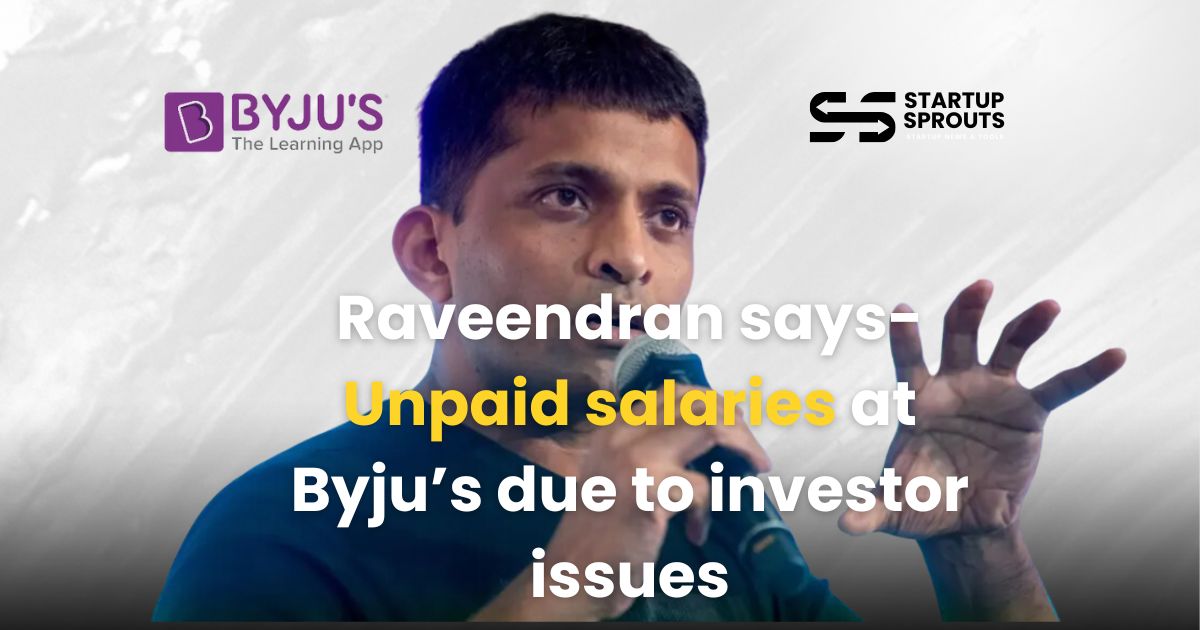Byju’s founder Raveendran took it to the internet saying there are unpaid salaries at Byju’s due to investor issues.
Byju’s, a prominent educational technology startup, found itself in a precarious situation when founder Byju Raveendran disclosed on March 2, as reported by the news agency PTI, that the company could not disburse salaries to its employees.
This inability stemmed from a recent rights issue where funds raised were locked in a “separate account” due to an ongoing dispute with investors. Raveendran conveyed to the staff that confident investors had resorted to an insensitive level of action, preventing the company from accessing the raised funds for salary payments. Prosus NV, Peak XV Partners, General Atlantic, and Sofina SA were among these investors.
They opposed Byju’s decision to raise $200 million at a post-money valuation of $225 million, significantly lower (99 per cent) than $22 billion from the company’s previous funding round. The situation escalated when, on February 23, Byju’s shareholders, comprised of prominent investors, unanimously voted to remove founder-CEO Raveendran and his family from the board.
Allegations of mismanagement and failures within what was once India’s leading startup were cited as the reasons. However, Byju countered these actions, labelling the voting process conducted in the absence of the founders as invalid and ineffective. Sources close to the investors revealed that more than 60 per cent of shareholders supported the seven resolutions proposed at the extraordinary general meeting.
These included removing the current management, restructuring the board, and initiating a third-party forensic investigation into the company’s acquisitions. Byju’s sources contested these claims, suggesting that only 47 per cent of shareholders were in favour. Prosus, one of the investors calling for the EGM, stated in a recent announcement that shareholders unanimously approved all resolutions addressing governance, financial mismanagement, and compliance issues within Byju. The resolutions also aimed to reconstitute the board to reduce founder control and alter the company’s leadership. Byju, once hailed as a pioneering force in edtech, faced a series of setbacks leading to its current predicament. Factors contributing to its financial strain included the return of students to physical classrooms post-pandemic, the acquisition of Aakash, and additional challenges over the past year. These included the resignation of its auditor, lenders initiating bankruptcy proceedings against a holding company, and a legal dispute in the US regarding loan terms and repayment.
In summary, Byju’s journey from meteoric rise to financial turmoil highlights the complexities and challenges of the startup ecosystem, particularly in the edtech sector. The clash between founders and investors and operational and financial hurdles underscores the fragility of even the most celebrated startups in the face of adversity.
Related posts
Leave a Reply Cancel reply
Hot Topics
Subscribe for newsletter
* You will receive the latest news and updates on your favorite celebrities!


Stay connected